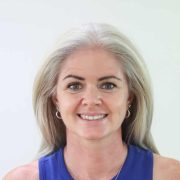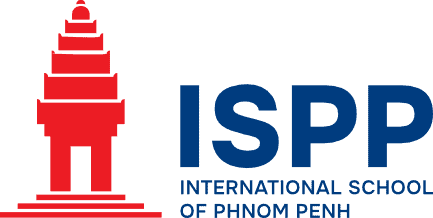Primary Years Programme

Ms ANIKA SOMMER
Primary Years Programme Coordinator
The PYP Curriculum Framework
At the heart of the PYP curriculum framework is the learner constructing understanding through the essential elements:
- Concepts
- Skills
- Attitudes
- Action
- Knowledge
Transdisciplinary Themes
The six transdisciplinary themes of global significance for all students in all cultures are:
- Who we are
- How we express ourselves
- Where we are in place and time
- How the world works
- How we organize ourselves
- Sharing the planet
Teachers are guided by these six transdisciplinary themes as they design units of inquiry with the driving question of “What is really worth knowing that is engaging, relevant, challenging and significant?” Each unit of inquiry is designed to transcend across all subject boundaries of:
- Language
- Mathematics
- Personal, Social and Physical Education
- Social Studies
- Arts
- Science and Technology
For more information about the Primary Years Programme Curriculum, please visit: http://www.ibo.org/pyp/
Primary years programme faqs
In Elementary, we view learning as a partnership between student, parent and our school. You can help your child by:
- reading and talking about their posts on Storypark (Early Years) or Seesaw (Kindergarten-Grade 5)
- maintaining regular contact with us
- sharing books with your child
- supporting your child’s mother tongue
- making discussion of ideas, opinions and events a regular feature at home
- working with your child when they use the Internet and/or books to find and make sense of information
- offering your expertise to the class to support a unit of inquiry
- attending information opportunities and parent workshops provided for parents
- being familiar with the IB learner profile
The goals of the PYP are essentially the same as our school’s goals, as reflected in our mission statement. However, the PYP allows us to achieve them more effectively. It demands a true partnership between students, teachers and parents in the school community and the global community.
Children are actively engaged in learning about issues and themes of universal significance. These are designed to allow students to become reflective and internationally minded; qualities that allow them to participate more fully in the world they will enter as adults. The PYP classroom is student-centred, they are encouraged and supported to be independent learners and critical thinkers, and learn to take appropriate socially responsible action.
The International Baccalaureate (IB) learner profile describes a broad range of human capacities and responsibilities that go beyond academic success.
They imply a commitment to help all members of the school community learn to respect themselves, others and the world around them.
Each of the IB’s programmes is committed to the development of students according to the IB learner profile.
The profile aims to develop learners who are:
- Inquirers
- Knowledgeable
- Thinkers
- Communicators
- Principled
- Open-minded
- Caring
- Risk-takers
- Balanced
- Reflective
All PYP schools use the same pedagogical approach, which is inquiry-based learning. The programme also develops an understanding of concepts; big ideas that are transferable to new situations. Your child will be able to transfer his/her knowledge to other PYP schools. As the transdisciplinary skills are embedded in all aspects of teaching and learning, your child will develop lifelong skills that can be applied in other schools.
Yes. Many curriculum frameworks are similar all over the world. It is the pedagogy that is perhaps different. The PYP emphasises learning through inquiry and discovery. Teachers join the students in the role as learner. Information is discovered and taught through carefully designed activities and learning experiences, not through simply reading or telling and then restating facts.
The IB offers a curriculum framework that transcends any one country’s national curriculum. Each IB school then develops their own curriculum based on the IB framework. The framework has rigour and is about supporting and guiding students so they develop enduring understandings. At ISPP we have developed and continue to refine our curriculum from K-12 using both the IB framework, and a variety of other international curriculum standards.
ISPP has its own written curriculum in all academic subjects with specific learning targets and outcomes that students are expected to achieve. Student progress is tracked at several points throughout the year in each grade level using a variety of tools: Language Continuums, a Developmental Reading Assessment, end of semester mathematics assessment, ongoing assessment in units of inquiry with checklists, rubrics and regular anecdotal records.
Traditional report cards are issues in December and June for students in Grades 1-5. Teachers report on a child’s level of engagement. We believe that an engaged learner is a student who participates fully, collaborates willingly, inquires actively, acts responsibility and seeks challenges. Engagement considers the student’s approaches to learning, and their characteristics as a learner in relation to the attributes of the IB Learner Profile and the PYP attitudes.
We do not award traditional grades in our reports. The reports incorporate written comments as well as these achievement indicators: expanding, consolidating, developing and emerging.
In the same way that we do not award grades in our report cards, neither are they given to students as part of a teacher’s feedback on a child’s work. We believe that feedback in the form of structured comments (oral or written) is more effective. Rubrics are developed to assess tasks with criteria that guide and enhance student learning and achievements. The intent in Elementary is to encourage intrinsic rather than extrinsic motivation.
The PYP has an action component, whereby students use their own initiative to demonstrate their commitment to what they have learned. Action often comes as the result of deep inquiry that becomes personal and is meaningful. At its most authentic, action occurs outside of the classroom – at home, or within the larger school or local community and can occur at any time.
Student-led conferences allow your child to discuss with you their progress and their understanding of new knowledge, concepts or skills. It is a powerful assessment strategy that uses self reflection as the tool to measure progress. Throughout the course of the school year, a child develops their ePortfolio (the online platforms Storypark in Early Years and Seesaw in Kindergarten to Grade 5). This portfolio contains samples of work that show growth and learning in all areas of our curriculum, and is used to help structure the student-led conference.
The exhibition is an extended, in-depth project celebrating the culmination of a child’s learning experience in the PYP before they move on to the next stage in their education.
Young learners conduct an in-depth inquiry into real life issues or challenges, and present their research, investigation and resulting action to the whole school community.
Recent research into the impact of the PYP exhibition found it to be a “valuable and pivotal experience in the life of the schools, families and students who were involved.”
The PYP is based on skills, knowledge, concepts, attitudes and action, which are transferable learning experiences and understandings. The programme leads into the MYP, through the vertical articulation of the approaches to learning (ATL) the transdisciplinary skills of the PYP and the key concepts and related concepts.
Learn more
Click on a topic below to learn more about our elementary education programme.
Footer
Join Us
Make an inquiry or schedule a tour to find out more about our beautiful campus and unique education programmes.
